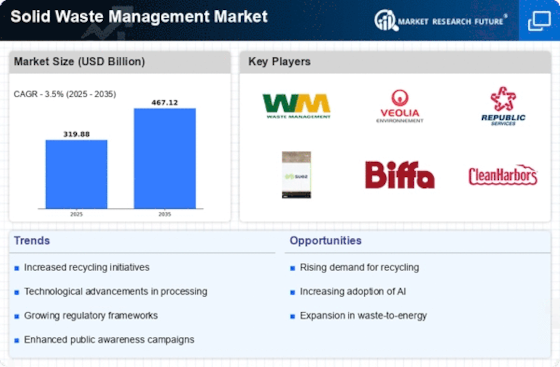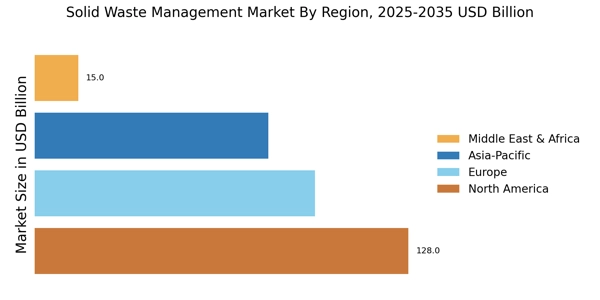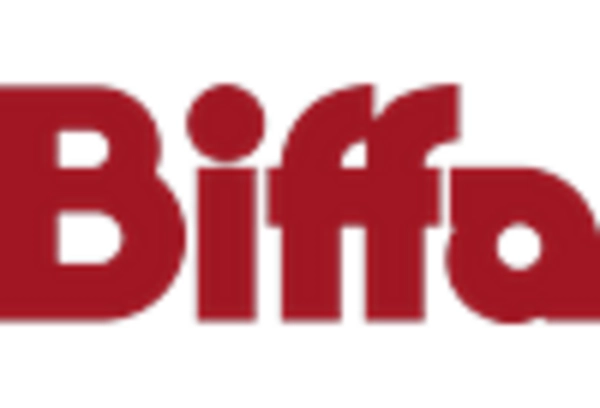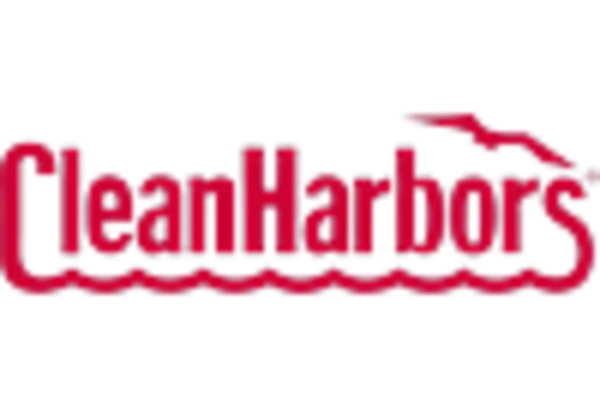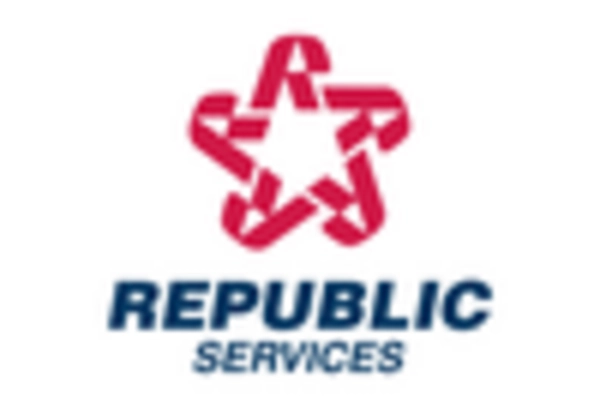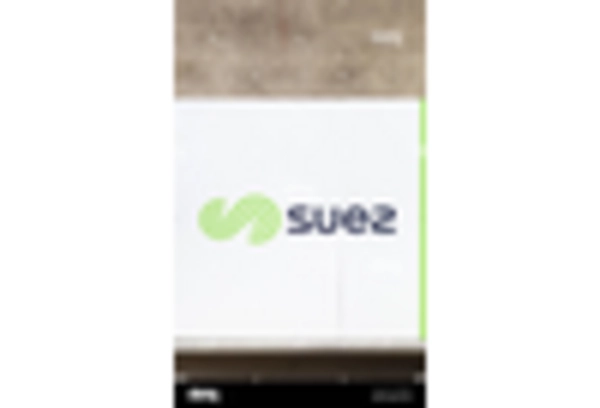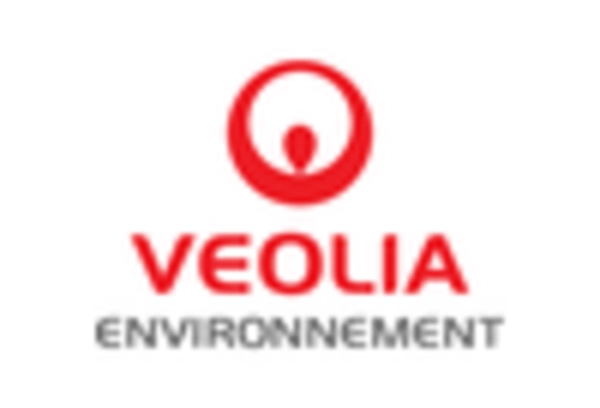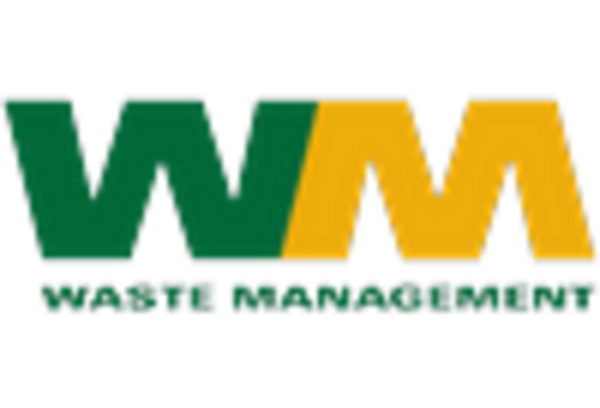Increasing Urbanization
The trend of increasing urbanization appears to be a primary driver for the Solid Waste Management Market. As populations migrate to urban areas, the volume of waste generated escalates significantly. According to recent estimates, urban areas account for approximately 70% of the world's waste. This surge necessitates advanced waste management solutions to handle the growing refuse effectively. Municipalities are compelled to invest in infrastructure and technologies that can accommodate the rising waste volumes. Consequently, this urban shift is likely to stimulate demand for innovative waste management services and products, thereby propelling the Solid Waste Management Market forward.
Technological Innovations
Technological innovations are emerging as a crucial driver for the Solid Waste Management Market. The integration of advanced technologies such as artificial intelligence, IoT, and automation is transforming waste management processes. For instance, smart waste bins equipped with sensors can optimize collection routes, reducing operational costs and improving efficiency. The market for waste management technology is expected to grow at a compound annual growth rate of around 10% over the next five years. This technological evolution not only enhances operational efficiency but also aligns with the increasing demand for sustainable practices within the Solid Waste Management Market.
Rising Environmental Awareness
Rising environmental awareness among consumers and businesses seems to be influencing the Solid Waste Management Market profoundly. As individuals become more conscious of their ecological footprint, there is a growing demand for sustainable waste management practices. This shift is reflected in the increasing adoption of recycling programs and waste reduction initiatives. Reports indicate that the recycling market alone is projected to reach a valuation of over 400 billion dollars by 2027. Such trends suggest that stakeholders in the Solid Waste Management Market must adapt to these changing consumer preferences to remain competitive and relevant.
Government Regulations and Policies
Government regulations and policies are playing a pivotal role in shaping the Solid Waste Management Market. Many countries are implementing stringent waste management laws aimed at reducing landfill usage and promoting recycling equipment. For example, regulations mandating the separation of waste at the source are becoming more prevalent. These policies are likely to drive investments in waste management infrastructure and services. As governments enforce compliance, businesses within the Solid Waste Management Market must adapt to these regulatory frameworks, which could lead to increased operational costs but also present opportunities for growth and innovation.
Economic Growth and Industrialization
Economic growth and industrialization are significant factors influencing the Solid Waste Management Market. As economies expand, industrial activities increase, leading to higher waste generation. The construction and manufacturing sectors, in particular, contribute substantially to waste output. Reports indicate that the construction industry alone generates approximately 30% of total waste. This trend necessitates effective waste management solutions to mitigate environmental impacts. Consequently, the Solid Waste Management Market is likely to experience heightened demand for services that can address the complexities of waste generated by industrial processes.


